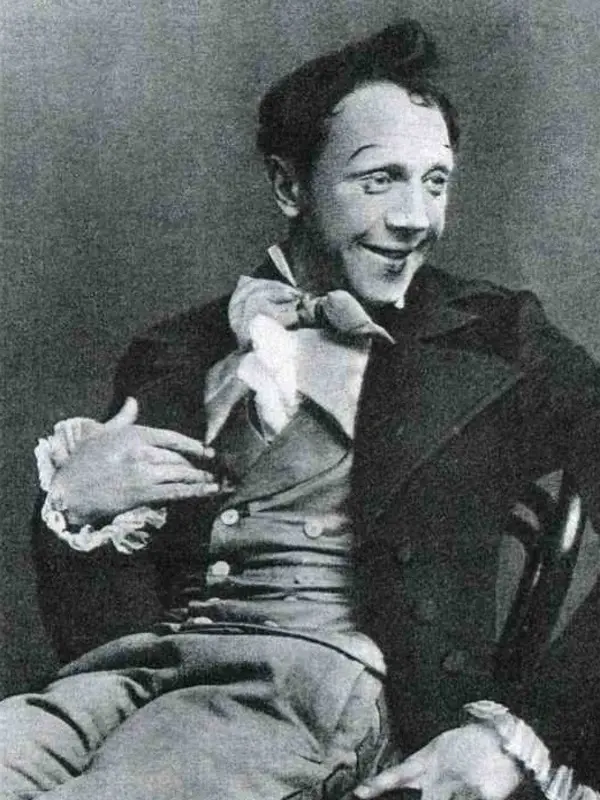The Psychological Gesture of Chekhov: A Manifesto Against Posturing
- Jul 22, 2025
- 4 min read
An open letter to actors, directors, and weekend workshop gurus who’ve reduced alchemy to apothecary scales.

You say "psychological gesture"? Congratulations. You’ve murdered it. Murdered it with textbooks, three-day "masterclasses," and your sacred incantation: "Show me Hamlet’s gesture as Chekhov taught it." Mikhail Alexandrovich watches you from eternity in silence. Know why? Because your gesture isn’t psychological. It’s corpse-like.
1. Your "Gesture" Is a Lie. Shall We Dissect It?
You teach "Chekhovian poses" like Meyerhold’s biomechanical études? Bravo! You’ve replicated the very error I seared with white-hot iron in my blog-post on Vsevolod Emilievich. Chekhov’s gesture is not form. It’s an explosion where:
The body is a conductor, not a tool (you don’t make the gesture - it makes you)
Impulse ignites in the imaginary center of gravity (not in the muscles!)
The result isn’t "verisimilitude," but transmutation (Shakespeare would say: "All the world’s a stage, but the actor is no puppet in it")
Mark this: if you demonstrate the gesture- you’re a charlatan. It must incinerate you.
2. Where You Lose the Essence: Three Graves
Grave 1: "Academic Schematics" You’ve dissected gestures into "analytical diagrams"? Splendid! Chekhov weeps. His method isn’t an anatomical atlas. It’s a mystical act - a Gurdjieffian "self-remembering" for the actor.
Grave 2: "Psychology Without Metaphysics" You seek "motivation" in the gesture? Stop. Chekhov’s gesture is archetypal. It connects you to Medea’s ancient horror or the trickster’s cosmic laughter. Doubt me? Reread his letters:
"The gesture is a door. Behind it lie not your petty feelings - but the fire of worlds."
Grave 3: "Safe Application" Directors! You use the psychological gesture as "paint" for your scenes? Wonderful. You’re counterfeiters. A true gesture shatters blocking, eviscerates text, and demands the actor’s death of persona. It’s not a "tool." It’s a death sentence.
3. When It Works: My Eyewitness Account - Richard III and "A Horse!" as Breaking Point



During Richard III rehearsals, an actor (call him "B.") exhaled "A horse! A horse! My kingdom for a horse!" like a checklist item. Technically adept. Loud. With textbook "despair." Lifeless. The audience saw an actor yelling about a horse - not a king losing everything.
I halted this inferno:
- You’d sell a kingdom? Cheap theatrics! Where’s your gesture of ruin - not in your ligaments, but in the black hole where your crimes drown? Don’t "act" - collapse. Let the gesture shatter you.
He discarded rationality. Paused. Made not a movement - but a descent into the abyss:
Phase 1 (Plummeting into void): Suddenly folded in half - not a "praying king," but a skeleton snapped by invisible lightning. Arms thrust downward, as if sucked into a hellish vortex beneath the stage.
Phase 2 (Gesture-as-verdict): Left hand flung upward, palm rejecting the sky (not "pleading"- cursing the gods). Right hand- clawing at his own throat.
Phase 3 (Voice as final wreckage): "My kingdom…" escaped not as a shout, but the grind of stones under a press. A whisper from a crushed tyrant. Not a demand - a last breath before oblivion.
What happened? - Text became flesh: "Kingdom" vibrated as an empire’s death rattle, not stage prop. - Body ceased being "B.": A demon forged by gesture stood there—no "actor in costume." - The audience’s silence wasn’t respect—it was terror. They witnessed not performance, but Lucifer’s fall.
This is Chekhov’s psychological gesture: Where the role’s "imaginary body" devours the physical. Where gesture isn’t illustration - but an act of self-annihilation to manifest myth. Richard didn’t "ask for a horse" - he vomited his soul.
Why this isn’t "technique"? The key: Chekhov’s gesture for Richard cannot be replicated. - For another actor, the gesture changes (his hell is unique). - For another day, it dies (demands a new leap into the abyss). - For the audience, it’s not "emotion" - but an execution experienced.
Conclusion for "B." (and you): If you control the gesture - you lie. If it shatters you - you near Chekhov.
"The gesture isn’t the role’s movement. It’s the role’s gallows, built from your fear. Mount it. Or exit the stage."
Are you ready to murder the actor within to manifest Richard? Or do you prefer safe poses of "tragic suffering"? Mikhail Chekhov’s theater isn’t for mask collectors. It’s for suicides.
4. Do You Need This Method? The Brutal Test:
- Actors: Will you surrender control? Let the gesture lead you into the chasm? - Teachers: Stop dispensing "Chekhov gestures" like recipes! You teach no cookery. - Directors: Quit using the method as a "depth" lifehack. Depth demands risk.
Remember: Grotowski followed Chekhov seeking the "holy actor." But if Chekhov is flight, your application is a fly crawling on window glass.
Your Choice - To Be or to Seem
Mikhail Chekhov left no "system." He left a challenge:
"First, vanish. Then let the gesture be born in the void. Then - stop breathing until it kills you."
If you seek "technique" - go to Meisner. If you want magic - learn to disappear.
Now- burn this text. Or begin anew. There is no third option.
Your theatre provocateur,
Sergei Ostrenko
P.S. Meyerhold beat actors with a stick. Chekhov murdered them with an invisible gesture. Who’s more terrifying?
*translated from Russian using AI


Comments